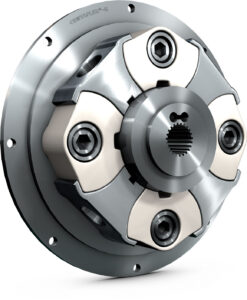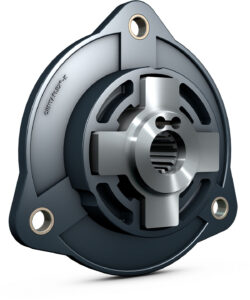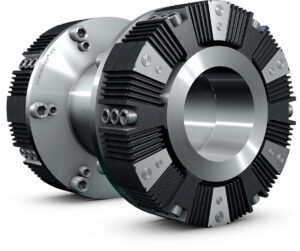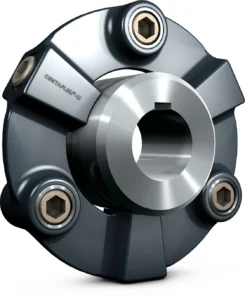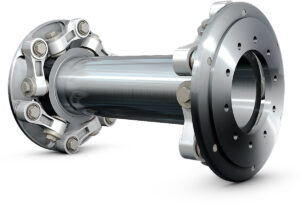A torsionally stiff coupling is an essential component in many industrial machines, including pumps, compressors, and generators. It is designed to transmit torque between two shafts while minimizing the effects of misalignment, vibration, and shock.
At its core, a torsionally stiff coupling consists of two hubs and a flexible element that connects them. The hubs are typically made of steel, aluminum, or cast iron, while the flexible element can be made of rubber, polyurethane, or other materials with high torsional stiffness. The flexible element is designed to absorb shock and vibration, while still transmitting torque efficiently.
One of the key benefits of a torsionally stiff coupling is its ability to handle misalignment between the two shafts. Even if the shafts are not perfectly aligned, the coupling can still transmit torque with minimal loss of power. This can help to reduce wear and tear on the machine, prolonging its lifespan and reducing the need for maintenance.
Another advantage of torsionally stiff couplings is their ability to dampen vibration and shock. In many industrial machines, vibration and shock can cause damage to the machinery and lead to premature failure. A torsionally stiff coupling can absorb these forces, reducing their impact on the machine and improving its reliability.
Overall, a torsionally stiff coupling is an essential component in many industrial machines. It provides a reliable and efficient way to transmit torque between two shafts while minimizing the effects of misalignment, vibration, and shock. Whether you are designing a new machine or retrofitting an existing one, a torsionally stiff coupling can help to improve its performance and reliability.



